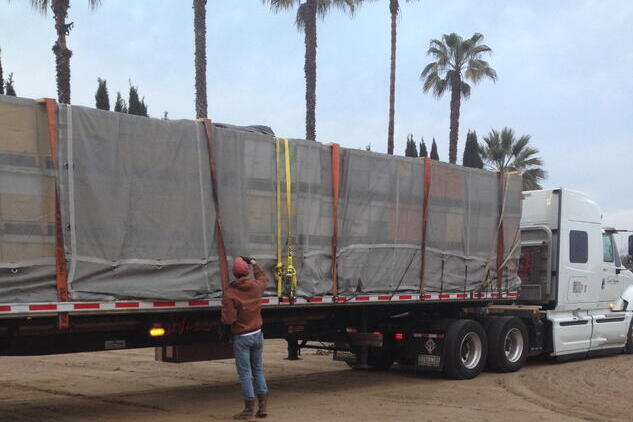Bee truck crashes pose steep economic losses for beekeepers, says Illinois expert

URBANA, Ill. — When a semi-truck carrying hundreds of honey bee colonies crashed and overturned in Washington state last week, it wasn’t just a roadside mess — it was a potentially devastating economic blow to the beekeeping operation behind it, said Brittney Goodrich, assistant professor of agricultural and consumer economics in the College of Agricultural, Consumer and Environmental Sciences at the University of Illinois Urbana-Champaign.
Commercial beekeepers in the U.S. routinely transport hives by truck, moving between crops that require pollination and regions where blooming flowers support honey production. Each semi-truckload typically carries 400 to 480 hives, Goodrich estimates based on her 2019 research paper.
According to USDA values, each honey bee colony is worth about $129, and a woodenware hive is valued at $230 per hive. So if a truck carrying 450 colonies tips over, that could amount to a potential loss of more than $160,000, she calculated.
“Such a loss can be extremely devastating to a beekeeping operation. Not to mention, many operations were already struggling with historic losses in 2025,” she said, referencing research led by the USDA Agricultural Research Service.
Even when some colonies are recovered, the clean-up process and the delay as bees return to their hives often mean lost income from both honey production and contracted pollination services.
“It looks like the beekeeper may have been able to recover some of the colonies, but the clean-up time and time spent waiting on bees to return to the colonies means they likely lost out on income from honey production or pollination services. This lost income is in addition to increased labor and input costs required to restore colony health,” Goodrich added.
Goodrich is available at bkgood@illinois.edu or 217-300-1016 to discuss the broader implications for agricultural supply chains and pollinator-dependent crop production.